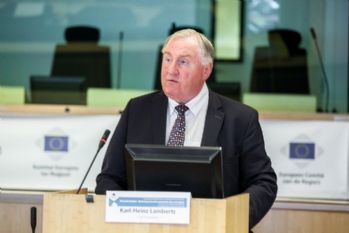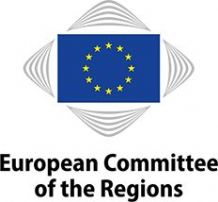EU must prioritise biodiversity and climate change, as UN sounds alarm

European Committee of the Regions President calls on EU to step up efforts in response to "profoundly alarming" UN report.
The European Union must place biodiversity at the top of its agenda, together with efforts to radically cut carbon emissions, the President of the European Committee of the Regions said on 7 May in response to a United Nations report that warns that "our life-support system" - the natural world - is at ever-greater risk, with one million species facing extinction. President Karl-Heinz Lambertz described the report as an "emergency call to all levels of government" to work together.
The report by the IPBES (Intergovernmental Science-Policy Platform on Biodiversity and Ecosystem Services), whose key findings were released by the UN on 6 May, reflects conclusions of scientists from around the globe derived from 15,000 academic studies. The report is frank and stark in its warnings. It states that biodiversity is declining at a rate unprecedented in human history, species are dying out at an ever faster pace, and humankind is "eroding the very foundations of economies, livelihoods, food security, health and quality of life worldwide."
President Lambertz (BE/PES) said: "Nature gives us life - and we are destroying it. Over the past half-century we have met the challenge of feeding a fast-growing global population with great success, but at great cost to the natural world. We need urgently to find a way to feed the world and ensure sustainable development, while restoring biodiversity. This crisis needs a shared response from all levels of government, including cities and regions. Together with tackling climate change, protecting biodiversity should move to the top of the EU's agenda. It is not too late to secure a biodiverse carbon-free world, but it needs concerted efforts and investment that delivers locally."
Roby Biwer (LU/PES), 1st Vice-Chair of the CoR's ENVE Commission and its rapporteur on biodiversity, said: "Biodiversity should be considered the foundation for our health and well-being. It underpins the functioning of the ecosystems on which we depend; and because it constitutes the environment in which we live, we have to protect biodiversity, learning to live in harmony with our ecosystems."
Mr Biwer underlined that European voters understand the deep connection between biodiversity and climate action, citing a survey by Eurobarometer published on 6 May that found that "two-thirds of Europeans totally agree that looking after nature is essential in tackling climate change."
The CoR is involved in the development of the post-2020 global and European policy framework for biodiversity. Recommendations adopted by the CoR in October 2018 insist - as does the IPBES report - on the need for Europe's cities and regions to become sustainable entities that conserve nature, restore biodiversity, maintain and enhance ecosystem services while meeting the critical needs of their populations. The CoR called for the development of an ambitious, time-bound, science-driven post-2020 EU Strategy on Biodiversity to save the diversity and abundance of life on Earth. It has also insisted on explicit recognition in EU and UN policies that local and regional authorities have an indispensable role to play in promoting biodiversity, and to provide cities and regions with the support they need.
Specific actions recommended by the CoR include: more cross-border green infrastructure and green corridors so that animals can pass from one place to another; strengthening local and regional governments' ability to combat invasive species; a greater role for municipal and regional authorities in ending wildlife trafficking; more research into ways to increase biodiversity in urban areas; and more funding for biodiversity work.

Contacts
Andrew Gardner
Tel. +32 473 843 981
andrew.gardner@cor.europa.eu
Nathalie Vandelle (FR, EN)
Tel. +32 2 282 2499
nathalie.vandelle@cor.europa.eu
